LOOKING FORWARD - HOW TO BEST MANAGE RISKS IMPACTING MINERAL, ENERGY AND MINING SUPPLY CHAINS
It is not too late! We extended the deadline for you to register to hear all of the excellent speakers participating in NY SME's 3rd virtual event. Click here now to register at no cost.
See the agenda below with abstracts and the speakers' bios. Also save the dates. Attend our 8th Current Trends in Mining Finance Conference (CTMF 2023) If you want to speak, be a sponsor, send your expressions of interest to info@smeny.org.
Share these events with others. If you are interested in the forecast supply shortfalls of raw materials, metals, rare earth minerals et al related to growing demand stemming from growing demand from evs, batteries, energy storage, the greening economy, register today to learn about the challenges and opportunity the mining and metals sectors face.
On January 10, 2023 more than 30 leading experts discussed in a series of more than 20 recorded panels and presentations discussing the global mining industries' effort to meet the challenge to produce more metal while managing many ever-changing risks, including geological, technical, technology, human, financial, regulatory matters as they also seek funding for exploration and to operate and produce mineral, energy and metal resources.
We thank the Sponsors of this, NY SME's third virtual event
Register at no cost to hear and learn how miners and all involved evaluate and manage the many risks the global extractive industries face as they seek to attract new, talented human and needed finance capital to explore, develop, and operate critical, precious, industrial mineral operations that feed global supply chains. All of this is being done as regulations increase, and mining and exploration companies work to meet growing social and community expectations, as they also need to manage many changing and varied global macro-economic, geopolitical forces and jurisdictional risks.
A consequence, often not recognized, of the shift to electric vehicles (EVs) and as industry worldwide adopts 'clean' energy and technology is there is a growing need to mine more and explore for and open new mines to meet the exponential growth in demand for more critical, battery minerals. Meanwhile, there is growing need to also mine more other minerals, metals, materials and fuels, often not labelled 'critical', which many are unaware of where they come from, that are also seeing explosive growth in demand.
This, our third virtual event like NY SME's first and second virtual events - which we encourage you to view - feature a series of discussions by many leading experts talking about risks and opportunities in global mining supply chains. (NY SME shifted to a virtual platform in 2020 after our postponing our in-person CTMF 2020 conference. Though join us in May 2023 as we reconvening in-person! in the heart of NYC. Learn more here).
Register for our 3rd virtual event, to learn about:
- Will the battery raw materials supply chain keep pace with demand?
- Is Canada really open to new investment in energy infrastructure?
- Impediments and uncertainties that will slow progress to energy transition goals
- How may many of the risks impact stability and security of mineral supply?
- How can one evaluate risks and uncertainties in minerals/ materials supply chains
- What are opportunities and challenges for an Off-World mineral resource economy
- Progress being made and gaps toward net zero carbon emissions in mining
- What is the legal and business case for Indigenous communities' participation and best practices for inclusion and obtaining consent?
- What does the SME Foundation do? Why is it important here in the USA?
- What is the future role of ESG in mine project finance? Why does it matter
- What is the U.S. DOE doing to fill critical gaps in domestic critical mineral supply
Hear many industry, finance, technical, and legal experts who are focused on evaluating and managing risks to fund and operate mines. Also hear from the Government of Germany, the Province of Quebec and U.S. Department of Energy (DOE) Vehicle Technologies Office (VTO) who develop policy that impact global mining supply chains.
Also NASA - National Aeronautics & Space Administration and U.S. Geological Survey (USGS) talk about new opportunities for public-private partnerships with the mining industry to leverage their experience and expertise with technology used in extreme environments and remote locations, similar to conditions in lunar, off-earth environments.
The esteemed speakers are from: Benchmark Mineral Intelligence; Cassels Brock & Blackwell; Colorado School of Mines, Division of Economics and Business; CostMine; CPM Group; Dentons; Eagle Mines Management; Ecora Resources; First Majestic Silver; German Mineral Resources Agency (DERA), Federal Institute for Geosciences & Natural Resources (BGR), Federal Geological Survey of Germany; Government of Quebec; Marc LeVier & Associates; NY SME; National Aeronautics and Space Administration (NASA); Pala Investments; Parsons Corporation; Ressources Québec; Rice University, Baker Institute; Shearman & Sterling LLP; Skarn Associates; Skycorp, Inc.; SLR International Corporation; Soar Financial Partners; Société du Plan Nord; Société du parc industriel et portuaire de Bécancour; Société Générale; Society for Mining, Metallurgy & Exploration (SME) Foundation (SMEF); SRK Consulting; Stantec Consulting; Teck Resources Limited; U.S. Department of Energy (DOE); U.S. Geological Survey (USGS); University of British Columbia; WSP USA; and others.
Read the agenda below, with the topic abstracts and speakers' bios. Join us!
NY SME also thanks our partners
Request a link to learn about these topics, arranged in alphabetical order. The agenda, with abstracts and speakers' bios, is below.
- A Deeper Understanding of ESG for Better Management & Investment Decision-making
- Cost Estimating Through the ESG Lens
- Economic and Political Risks To Precious, Base, and Specialty Metals, Including Uncertainties Related To The Energy Transition
- Financing the Development of Critical Minerals Projects; a Roundtable Discussion
- Financings: Christmas Presents and Death Spirals: Two Sides of the Same Coin
- From Minerals to Metals: What Investors Need to Know; A Metallurgical Perspective
- From Mining to Manufacturing, Risk Management of a Whole Supply Chain: The Quebec Approach
- Galvanizing Our Future: The Case for Zinc
- Geopolitical and Market Uncertainty: What do I Consider and How do I Consider it?
- Introductory Welcome from NY Chapter of SME
- Is Canada Really Open to New Investment in Energy Infrastructure?
- Large Scale Demonstration and Deployment Investments in America's Clean Energy Supply Chain
- Mine Project Finance and ESG
- Mineral Supply Chain Risks Start with Exploration
- Mine Risk Planning includes Closure & Beyond: Roundtable Discussion
- Opportunities and Challenges for an Off-World Mineral Resource Economy: A Roundtable Discussion
- Overview of SME and SME Foundation Programs: Supporting and Inspiring Mining Professionals Worldwide
- Progress Toward Net Zero: The State of Play
- Reducing Regulatory Risks in Partnership with Indigenous Communities
- Risks & Uncertainties in Minerals/Materials Supply Chains – An All-on-the-Table Conversation
- Robust Raw Material Supply Chains for the Present and Future - What Needs to be Done?
- The Great Raw Material Disconnect: Can Battery Raw Materials Supply Keep Pace with Demand?
LOOKING FORWARD - HOW TO BEST MANAGE RISKS IMPACTING MINERAL, ENERGY AND MINING SUPPLY CHAINS
to be released on Tuesday January 10, 2023
request a link to attend
Introductory Welcome from NY Section of SME: Tim Alch, Executive Director of NY SME and Alan Oshiki, Chairman of NY SME

Tim Alch is Executive Director (2016-22) and Executive Committee Member (2008-16) of NY SME, and Managing Partner of TAA Advisory. Since 2012, Tim has chaired and organized more than 35 expert panel discussions. He is co-chair of NY SME's annual Current Trends in Mining Finance (CTMF) Conferences. His work history spans equity, management and investment analysis focused on metals, mining and energy, and executive placement. He is a Senior Associate and was a Managing Director of Behre Dolbear; SVP of Anderson & Schwab; Equity Analyst at Paine Webber, Prudential Securities, and Dean Witter Reynolds and Senior Industry Analyst at CRU International (London), World Steel Dynamics (New York) and Resource Strategies (Philadelphia). He is an Honors Geology graduate, and John Mason Clarke fellow of Amherst College; studied Mineral & Energy Economics at Pennsylvania State University; and member of SME, AEMA, PDAC and NCUSCR and was a SME Finance Strategic Committee member (2017-20). In 2020 Tim was selected as the 2020 recipient of the SME President's Citation for Local Section Service Award.

Alan Oshiki is the Executive Vice President of Abernathy MacGregor (New York), one of the world's top corporate, strategic and financial communications consultancies. Alan advises on event-driven stakeholder engagement for initial public offerings, mergers and acquisitions, crises, activist shareholder defense, litigation, bankruptcy and financial restructuring, as well as innovative, high-impact approaches to ongoing communications with business audiences. Alan helps management teams and boards of directors engage their investors, customers, employees and other important stakeholders to attract capital and deal flow, generate revenue, and build loyalty and support. He works with some of the world's largest corporations, as well as middle-market companies, start-ups, private equity sponsors, professional services firms and industry associations. Alan has over ten years of direct mining industry experience in engineering, management and finance with BHP/Magma Copper. His mining industry clients have included Alpha Natural Resources, Hecla Mining Company, Coeur Mining Inc., and Joy Global Inc. He holds an MBA from the University of Arizona and a BS in Mining Engineering from the University of Idaho. A published author as well as a frequent speaker and workshop leader, Alan is also Chairman and Treasurer of the New York Section of the SME.
The Great Raw Material Disconnect: Can Battery Raw Materials Supply Keep Pace with Demand?: Jessica Roberts, Head of Forecasting, Benchmark Mineral Intelligence
The pace of growth in the lithium-ion battery sector is astounding; in 2022 Benchmark expects global LiB demand to grow 40% y-on-y, with commensurate demand increases across the LiB raw materials supply chain. At the heart of this growth is the transition to electric vehicles. With this rapid pace of battery demand growth set to remain well into the coming decades, Benchmark data shows more than 300 new mines will be required to meet battery demand by 2035 – even with the growing contribution of battery materials expected to come from LiB recycling. But with average mine development times typically in the range of 5-25 years, the disconnect between demand and supply may be ever-more challenging to bridge.
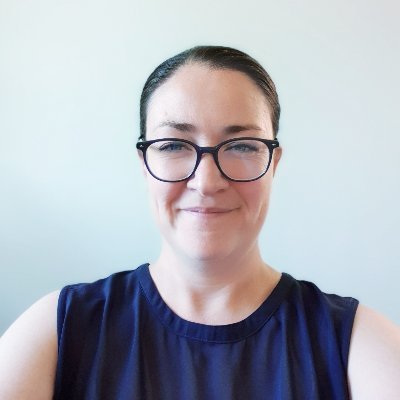
Jessica Roberts is Head of Forecasting for Benchmark Mineral Intelligence, leading a team of global analysts responsible for Benchmark's forecast subscription services. She has spent the past 14 years demystifying the opaque world of critical materials, at global research and consultancy organizations including Wood Mackenzie, Roskill, and Fastmarkets. Jessica has worked across a range of critical minerals and metals, including cobalt, graphite, fluorspar, lithium, tantalum, tungsten, titanium and tin, both as an industry consultant and research manager. She is an authoritative voice on critical material supply chain dynamics, featuring in print and broadcast media, and regularly speaks at industry conferences. Jessica has a Master's degree in Geology from the University of Leicester.
Economic And Political Risks To Precious, Base, and Specialty Metals, Including Uncertainties Related To The Energy Transition: Jeffrey M. Christian, Managing Partner, CPM Group LLC
This presentation will discuss the outlook for global and national overall economic growth, inflation, interest rates, money supply, currency markets, and other economic and political issues. In addition to discussing the short and long term outlook for these factors, the presentation will discuss the relationship between such economic and political factors to precious, base, and specialty metals markets. Part of the discussion will be to dispute many commonly accepted tropes that are not supported by data or empirical evidence, e.g. the relationships between inflation, the dollar, and money supply to gold and silver prices. The presentation then will address issues related to the energy transition, some of the major impediments and uncertainties that will slow the energy transition, and the implications of both the energy transition and its slower than anticipated development to various metals markets, including platinum group metals, copper, nickel, manganese, cobalt, and others.
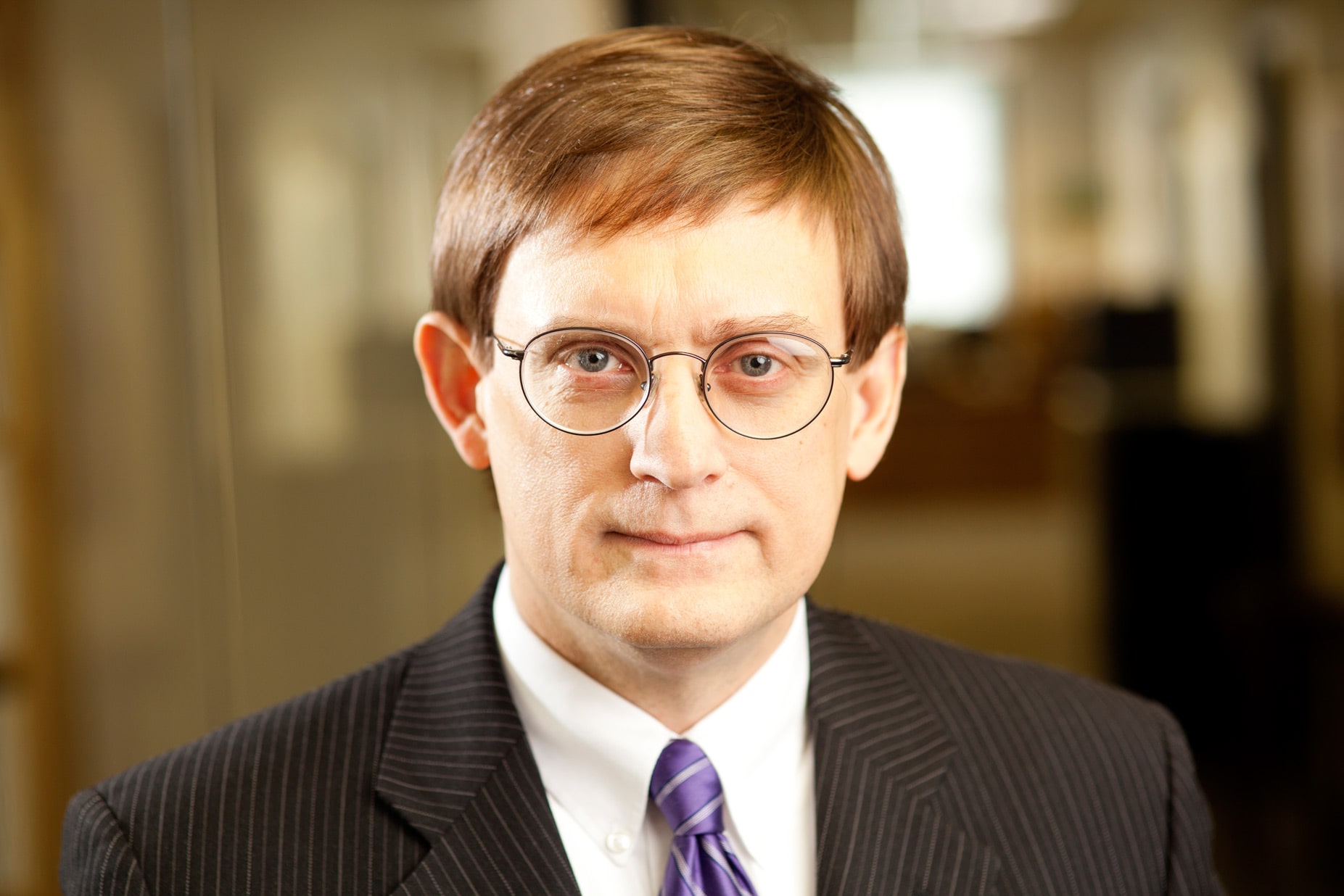
Jeff Christian is Managing Partner of CPM Group, a precious metals and commodities research and consulting firm. He founded CPM Group in 1986 when he bought the Commodities Research Group he managed from J. Aron and Goldman Sachs. He is a globally recognized authority on the markets for precious metals and is well known for his application of economics and econometrics across commodities markets. He has written two books, Commodities Rising in 2005 and World Guide To Battery-Powered Road Transportation in 1979. He also is well known for his financial engineering work using commodities derivatives both for hedging and investment purposes and has worked with numerous governments, central banks, mining companies, industrial companies, investment banks, and institutional investors.
Risks and Uncertainties in Minerals/Materials Supply Chains – An All-on-the-Table Conversation: Michelle Michot Foss Ph.D., Fellow at Baker Institute Center for Energy Research, Rice University
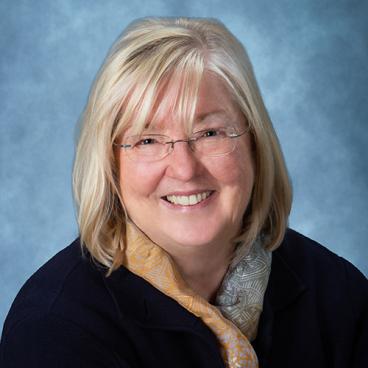
In these messy times, new-found attention is being placed on materials supply chains as stresses develop around energy, non-energy and defense priorities collide with market and geopolitical realities. Public antipathy in the US, Europe and even countries where minerals production is a primary activity encumbers both expansions and green field projects. The industry must deal with ‘ESG' pressures that are influencing capital markets heavily and for which many operational and commercially acceptable solutions do not yet exist. Broad lack of coordination within and among governments and societies over conflicting priorities are disrupting commodity markets and contributing to inflation pressures. Will the industry be able to respond in effective ways to opportunities and challenges?
Michelle Michot Foss, Ph.D., has more than 45 years of professional consulting, investment banking and university leadership research experience in oil, natural gas, LNG, power with early career involvement in the mining industry. She has led USG and other assignments in more than 20 countries.
Financing the Development of Critical Minerals Projects: Roundtable Discussion: Chair, Cynthia Urda Kassis, Partner, Head of Project Development & Finance | Lead Industry Coordinator for Mining & Metals, Shearman & Sterling LLP; Alice England, General Counsel, Ecora Resources PLC; Kate Southwell, General Counsel, Pala Investments; and Lénaïg Trenaux, Managing Director, Global Head of Mining, Metals & Industries, Paris, Société Générale
This roundtable discussion examines key challenges to financing the development of critical mineral projects from the point of view of three major types of investors in the mines and metals sector-- international commercial banks, private equity funds and royalty/streaming companies. Representatives from all three discuss what the fundamentals are for a financeable project, how those are the same or differ from more traditional mineral projects, changes which may be required in how investors analyze and mitigate risks in critical mineral projects and more.
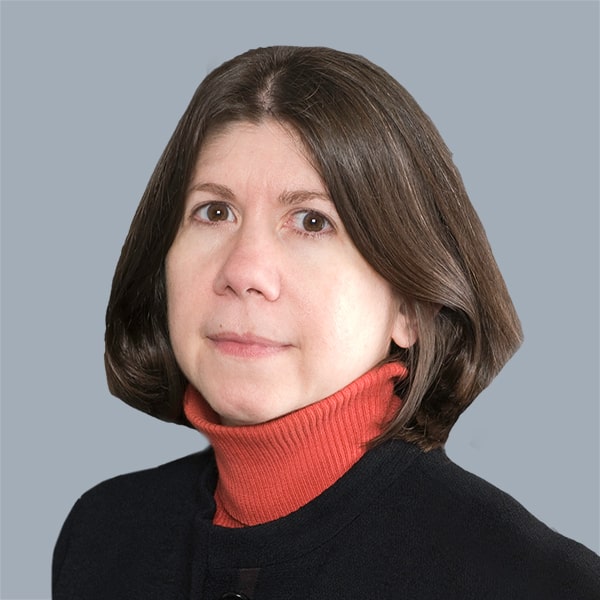
Chair: Cynthia Urda Kassis is Partner, Head of Project Development & Finance and Lead Industry Coordinator for Mining & Metals. Cynthia has decades of experience representing sponsors/borrowers as well as providers of finance in project, finance and joint-venture transactions worldwide, with extensive experience in the mining industry, as well as in infrastructure and energy. For her impact in the space she has been a three-time recipient of the “Project Finance Lawyer of the Year” award by Who's Who Legal. Cynthia's notable work in the mining space includes the representation of: (i) Orion and Blackstone in the financing of Lundin Gold's $1B+ Fruta Del Norte Project in Ecuador; (ii) Orion Mine Finance on its acquisition of Occidental Petroleum's Wyoming, Colorado and Utah Land Grant assets for about $1.33 billion and the financing thereof; (iii) Société Générale and ING on the structured acquisition financing of Cobalt 27 and (iv) Nevada Copper on the development and financing of its Pumpkin Hollow Underground Copper Project.

Alice England joined Ecora Resources PLC in March 2019. She has over 15 years’ experience in the natural resources sector, and a detailed understanding of the legal terms and structures of royalty and streams. In 2021 and 2022, Alice played a key part in the successful completion of two of the largest deals in Ecora Resources’ history, totaling nearly $400 million. The transactions successfully pivoted the Company away from its coal heritage towards the commodities required to support a more sustainable future. Prior to joining the Group, Alice began her legal career at Herbert Smith Freehills. She qualified as a lawyer at Dentons and during that time worked in the Middle East on hydropower and carbon capture storage projects. Subsequently Alice worked as a senior legal and commercial adviser at a FTSE 250 oil and gas company, where she provided advice on a wide range of transactional and operational matters with a particular focus on corporate M&A, fundraising, acquisitions and disposals, corporate governance and dispute resolution. Alice has a BA (Hons) in English Literature and Diploma in Law from Exeter University and Legal Practice Certificate from Oxford University, College of Law.

Kate Southwell is General Counsel of Pala Investments, a private investment fund based in Zug, Switzerland. She has been with Pala for over 9 years. Pala is a thematic fund focused on value creation along the mining and metals supply chain and facilitating the sustainable supply of commodities for the green transition. Kate has led several transformative M&A and innovative financing transactions in nickel, copper, cobalt and other battery metals. Kate manages all legal, commercial and strategic matters for Pala and its hedge fund, Pala Assets and is co-head of ESG. As a qualified lawyer in both the US and UK, Kate brings a strong commercial focus to drive excellence, communicate complex legal problems in an accessible way, and minimize risk. Kate is a director of Nevada Copper (TSX:NCU) and Kasbah Resources Ltd. Kate is a regular speaker on ESG and decarbonization at industry events, and is passionate about improving diversity, sustainability and safety in the mining sector. Prior to joining Pala, Kate was with Nyrstar NV, and worked on numerous transformative projects including the Breakwater acquisition and the redevelopment of the Port Pirie smelter in South Australia.

Lénaïg Trenaux is Societe Generale's Global Head of Mining, Metals & Industries, based in Paris after previous experiences in the US and London. Lénaïg has more than 20 years of experience in the sector and has been involved in a broad range of transactions, leading several high profile transactions in Europe, Africa, and the Americas. SG is a lead bank in the critical minerals financing globally and continues to further deploy in new value chains, linked to energy transition and supply chain reshoring. Lénaïg’s teams have developed strong expertise across the EV value chain, from the upstream to the downstream as well as in the various metals decarbonisation and circularity sectors.
Geopolitical and Market Uncertainty – What do I Consider and How do I Consider it?: Chair, Michael Stine, Mineral Economist, Stantec; Professor Graham Davis, Professor Emeritus, Division of Economics and Business, Colorado School of Mines; Jay Okey; and Patrick Sobecke, Senior Mining Consultant, Stantec.
Blackrock's geopolitical risk dashboard suggests the risks of Russia-NATO conflict, global technology decoupling, emerging markets political crisis, and US-China strategic competition are all medium to high. The World Bank notes that supply chain disruptions, lockdowns in China, and the risk of stagflation are hammering growth, and that a recession will be hard to avoid for many countries. While every major institution warning about risks, how do these apply to the mining industry? How may they affect the stability of mineral supplies? Are these risks project-specific or strategic across commodities and locations? What about some countries' hopes to onshore supply chains? How do firms incorporate these risks into their strategic decision making and project execution?
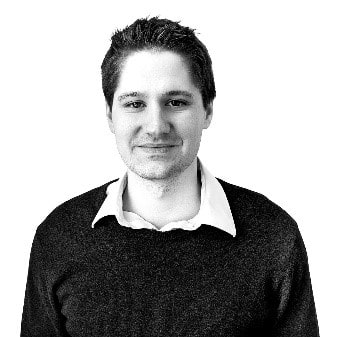
Chair: Michael Stine is a mineral economist with Stantec and focuses on valuation, risk analysis, and economic modelling. He previously served as an intelligence analyst at the Central Intelligence Agency where he helped senior policy makers understand the national security risks related to his area of expertise. He enjoys using his technical and economic background to enable decision makers to understand and apply both economic and technical principles to strategic decision making. He has an MS in Mineral and Energy Economics from the Colorado School of Mines and a BS in Mining Engineering from the University of Utah.
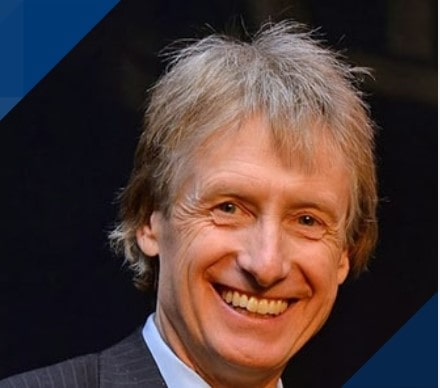
Graham Davis is a Professor Emeritus in the Division of Economics and Business at the Colorado School of Mines and consults in mine and project valuation for several large mining companies. Professor Davis also has significant experience as an expert witness in litigation involving mine valuations and damages from temporary takings. At the Colorado School of Mines, Professor Davis taught a range of courses including applied microeconomics, mineral and energy asset valuation, and research methodology. He has a PhD in Mineral Economics from Pennsylvania State University, an MBA from the University of Cape Town, and a BS in Metallurgical Engineering from Queen's University.
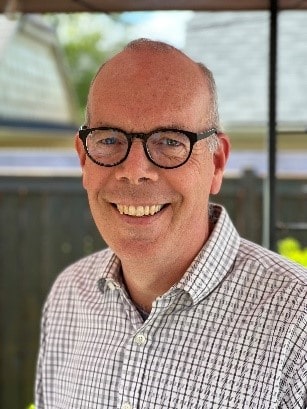
Jay Okey enjoys working with people to better understand risk assessment challenges in a messy world. He served as an intelligence analyst with the CIA and the National Intelligence Council for 35 years, helping senior US decision makers grapple with national security risks and opportunities on a wide variety of issues and regions across an arc of history running from the Cold War to COVID. Among various roles, he has worked high-priority country accounts, helped produce the US Intelligence Community's 20-year strategic assessment known as “Global Trends,” led analysis for an innovative open-source analytic startup, and served as the chief of CIA's alternative analytic unit challenging key assumptions to hunt for strategic surprises. He currently engages with SAIC's simulation exercise group, teaches sessions at the University of Washington Jackson School of International Relations, and offers his own services through Three Think consulting on risk assessment, strategic surprise, alternative analysis, scenarios, and effective writing for decision makers.
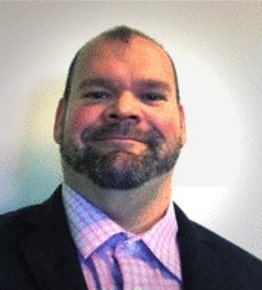
Patrick Sobecke is a senior mining consultant at Stantec with a diverse background spanning operations, engineering, corporate strategy, and change management. He has 20 years of experience in underground and surface coal, surface metals, and equipment sales and maintenance. He enjoys the challenge of continuous improvement and understanding and attacking the root cause of any problem, over treating the symptoms. Before joining Stantec, Patrick held roles at Accenture, RPM Global, and various mining companies. He has a BS in Mining Engineering from Virginia Tech.
Is Canada Really Open to New Investment in Energy Infrastructure?: Greg McNab, Partner, Corporate Securities, Dentons LLP
Given recent developments on the international energy stage, the Canadian government has recently made public statements about what role it could play in the shakeup of international energy supply. Unfortunately Canada has no magic bullet to fast track anything when it comes to heavy energy and mining projects. For better or for worse, we have a system that values the rule of law and a public consultation process when it comes to things of significance. In Canada, there are many stakeholders that have to be consulted and that takes time. The projects that we are talking about will take years to approve and years more to implement, and frankly to date have received no support from the current federal government.

Greg McNab is a Senior Partner at Dentons, an international law firm with experience advising on a variety of global mining issues. Greg's practice focus is on assisting resource and energy companies in penetrating and expanding new markets. He has acted for a number of Asian, European and Australian resource companies. Greg provides advice on many aspects of corporate legal matters, including the negotiation and drafting of purchase and sale agreements, joint venture arrangements, earn-in agreements, private and public investment structures, shareholder agreements, opinion letters, applications for regulatory relief and related transaction documents. Greg regularly speaks, writes published articles and appears in the media with respect to a variety of corporate, securities, mining and climate change matters. He is a director and chair of the Canadian Chapter of the Canadian Australian Chamber of Commerce.
Large Scale Demonstration and Deployment Investments in America's Clean Energy Supply Chain: Samm Gillard, Supply Chain Development Manager, U.S. Department of Energy (U.S. DOE)
DOE's newly launched Office of Manufacturing Energy and Supply Chains (MESC) has been given the charter of advancing the domestic footprint in critical materials and supply chains across the clean energy spectrum. With recent investment in the battery supply chain, and upcoming solicitations in other areas, we are working to understand the critical gaps in our domestic supply, and investing in those gaps to increase economic impact and domestic resilience.
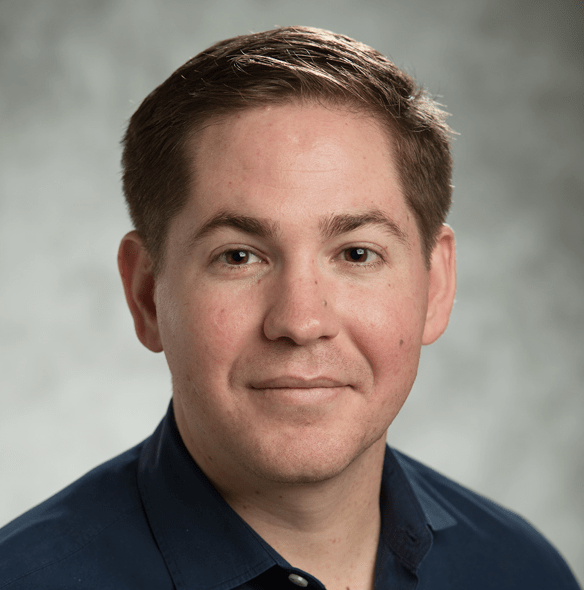
Samm Gillard is a technical project manager for the U.S. Department of Energy's (DOE) Vehicle Technologies Office (VTO) and a supply chain manager in the newly established Manufacturing Energy and Supply Chains Office, where he leads research, development, and deployment projects aimed to advance low cost, secure, and clean energy technologies for transportation and increase the U.S. footprint in the battery supply chain. Within VTO, he manages several projects for the Battery R&D team, and in MESC leads the Bipartisan Infrastructure Law programs. His areas of responsibility include lithium ion battery recycling, extreme fast charging, and leads multiple initiatives for the Federal Consortium for Advanced Batteries. Most recently, Samm served as the first author on the Biden administration's 100 Day Supply Chain Review for High Capacity Batteries. Prior to DOE, he worked in battery design and supply chain for the Department of Defense, worked for the U.S. Patent and Trademark office as a patent examiner in batteries and fuel cells, and served in the military. He has a degree in Materials Science from the University of Maryland.
Mine Project Finance and ESG: Richard J. Lambert, MBA, P.E., P. Eng., Technical Director, U.S. Mining Advisory, SLR International Corporation
Mine finance projects have typically included the role of Independent Engineer to act as technical advisor to the lenders. The concept of Environment, Social, and Governance (ESG) has been part of project finance as long as there've been large multinational banks involved. Currently we see some major banks backing away from mine project finance for precious metal mines in favor of green energy projects like lithium, graphite, copper, nickel, and cobalt. The presentation will review some social mitigations that also increase the carbon footprint. How do we weigh the impacts? What is the future role of ESG in Mine Project Finance.
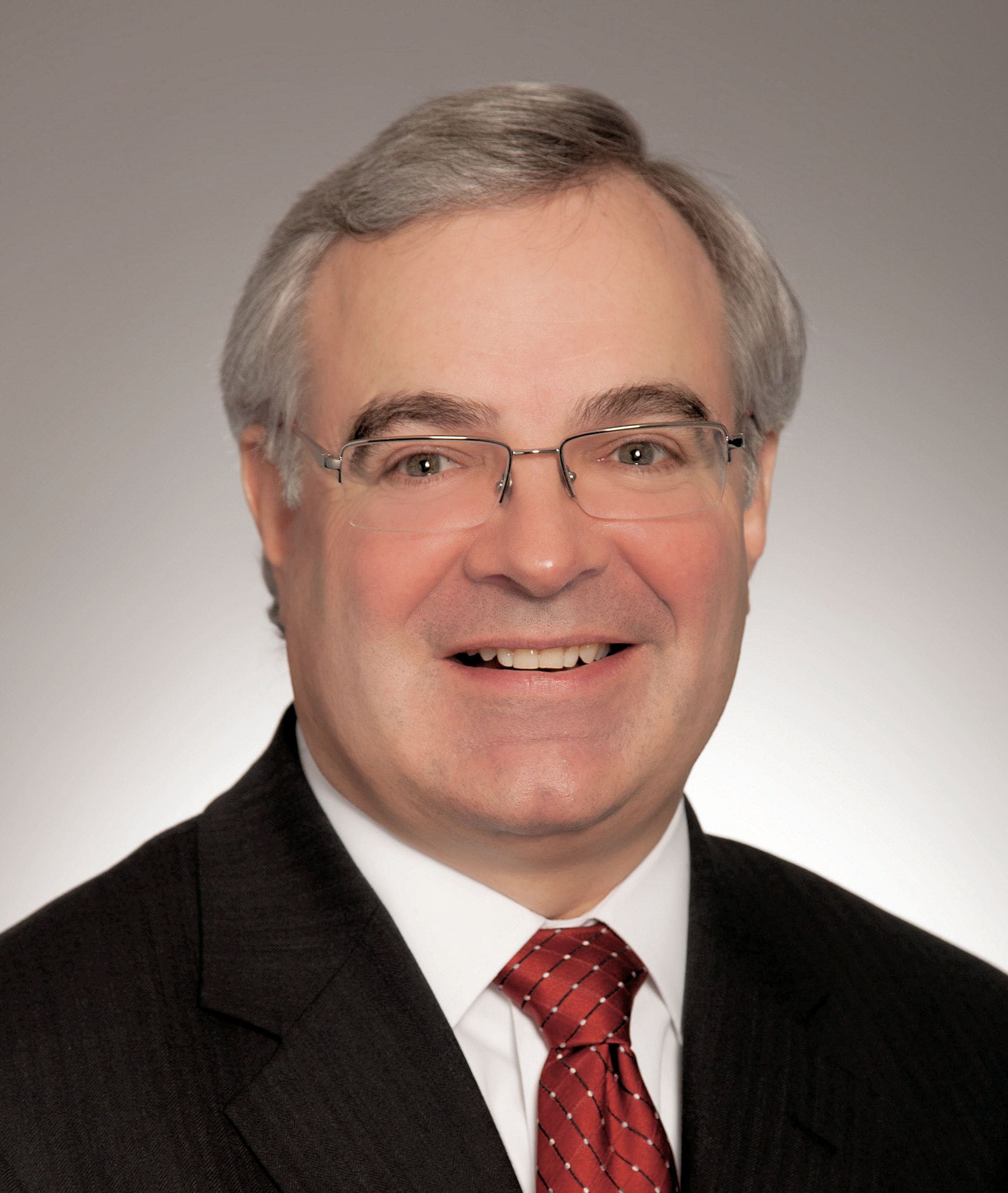
Rick Lambert is Technical Director, U.S. Mining Advisory for SLR Consulting and is responsible for operations of the company's U.S. mining consulting practice. He is a senior mining executive with more than 40 years experience in all aspects of mine development from permitting to closure. His experience includes development and operation of open pit mines, start-ups, preparation and implementation of feasibility studies, due diligence, M&A, and management consulting. He was employed by Fortune 500 mining companies for the first 17 years of his career including Phelps Dodge, Kennecott, NERCO and Exxon Minerals. Since then he has been providing mining contracting and consulting services. He's been involved with over 120 mining properties around the world. He's lead teams of mining experts in reserve audits for major mining companies and been involved as the independent engineer on many large mining project financings over US$1 billion (Esperanza, Antucoya, Caserones, Quebrada Blanca, and Constancia).
Mineral Supply Chain Risks Start with Exploration: Robert W. Schafer, Eagle Mines Management
Access to land/geology and risk capital, technology, government, social acceptance, skilled people, markets, and time are components of overall risk that work against developing connected supply chains for critical minerals. The discussion will focus on the upstream, exploration /discovery end of the supply chain. The ability to feed the critical mineral supply chain necessary for the “Electric Economy” starts with mineral discovery and leads to mine production. Optimistically, if these events were to occur without the regulatory framework, a timeline from exploration to mining would be in the range of 5-7 years for each mine. With government regulation, the timeframe stretches to about 9-12 years. Adding time for public comment, citizen concern and legal battles increases this stretch to 15-20 years or never! Given liberty to explore, economic geologists have historically made sufficient economic discoveries to satisfy market demand. However, without radical changes to shorten timelines from discovery to production to market, the ambition to achieve society's desire for an Electric Economy cannot be realized by 2030, 2050 and probably not by 2100!
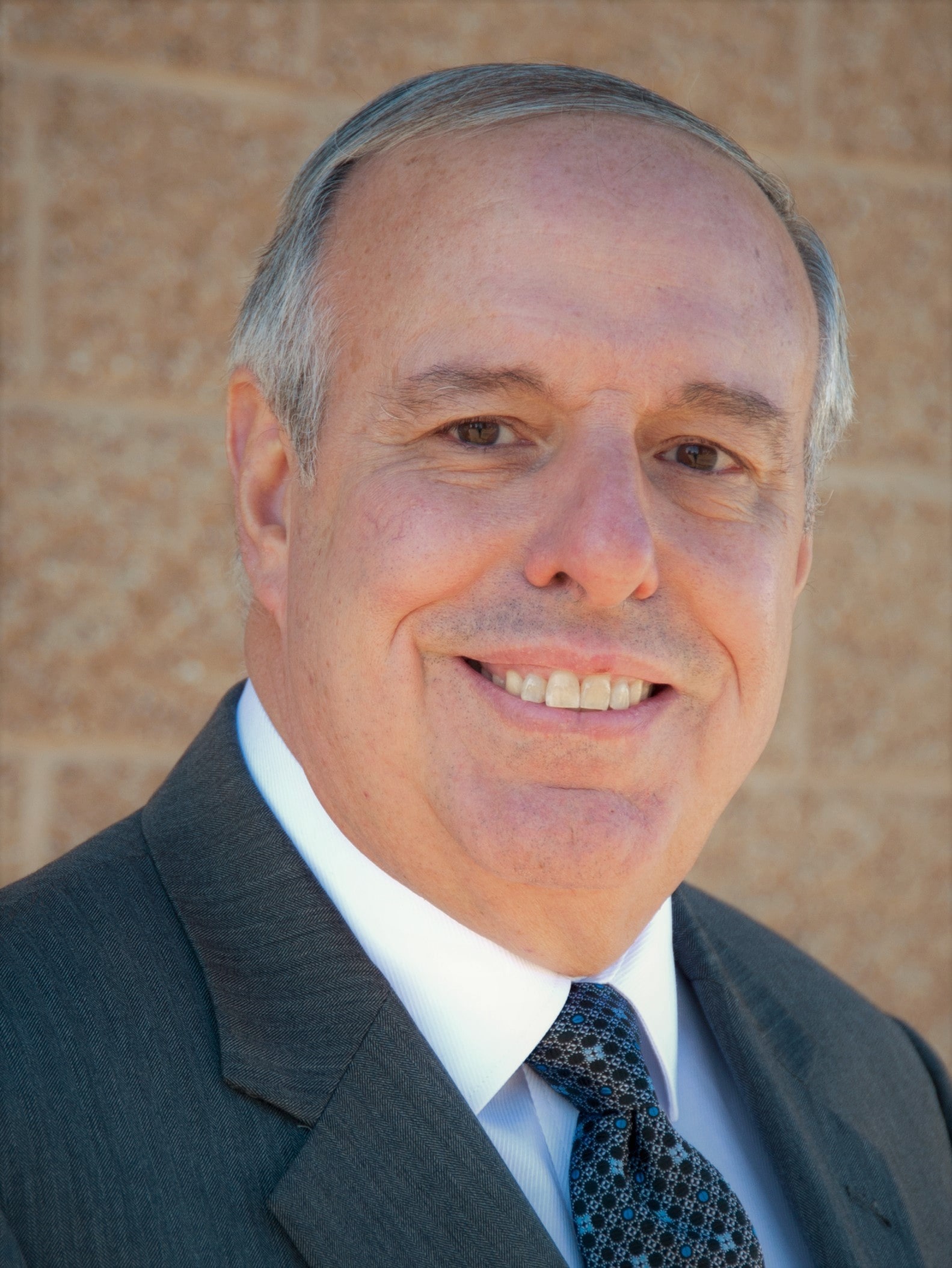
Robert W. Schafer is a Registered Professional Geologist with +30 years international experience exploring for mineral deposits and identifying, evaluating and structuring business transactions globally having worked in more than 80 countries on all continents. Mr. Schafer is an active member of SME (President 2020-2021), the PDAC (President 2015-2016), the CIM (President 2013-2014) and the Mining and Metallurgical Society of America (MMSA – President 2005-20066). He was a member of the Board of Governors for the US National Mining Hall of Fame and the Board of Directors of the Canadian Mining Hall of Fame. He is the only person to hold such leadership roles in both the USA and Canada. Mr. Schafer is the recipient of the William Lawrence Saunders Gold Medal from AIME, as well as the Daniel C. Jackling Award and Robert A. Dreyer Award from SME for technical achievements and leadership in the mining industry during his career. He earned his BSc and MSc degrees in Geology and in Mineral Economics and completed studies toward a PhD in Economic Geology. In addition, he completed the Executive Management program at Stanford University. Mr. Schafer is a Certified Corporate Director (ICD.D) and a Registered Professional Geologist in the States of Wyoming and Utah. He is founder and CEO of Eagle Mines Management and is a member of the Board of Directors of select mining companies.
Opportunities and Challenges for an Off-World Mineral Resource Economy: A Roundtable Discussion: Chair, Allison F. Zuniga, Project Development Manager for Commercial Space Initiatives, NASA; Dr. Anthony Colaprete, Planetary Scientist, NASA; Bruce Pittman, V.P. of Development, Skycorp, Inc. and co-founder of the Space Portal Office, NASA; Dr. Dan Rasky, Senior Scientist and the current Chief, Space Portal Office, NASA; and Colin Williams, Mineral Resources Program Coordinator, U.S. Geological Survey (USGS)
Presently, NASA is collaborating with commercial and international partners to return humans to the lunar surface as well as developing plans to establish the first long-term human presence on the Moon. Successful development of human outposts and other critical surface infrastructure will depend on mining the local mineral and volatile resources to achieve a sustainable human presence on the Moon. Significant work is underway through a NASA-USGS partnership, as well as other international space agencies to understand and plan for resource prospecting, mining and utilization. Results of these efforts could create new opportunities for public-private partnerships with mining industries to leverage their experience and expertise with mining technologies that are being used in extreme environments and remote locations, similar to conditions in the lunar environment. In this session, we will discuss the opportunities and challenges for space resource mining and the critical steps needed to enable a sustainable Space Resource Economy.
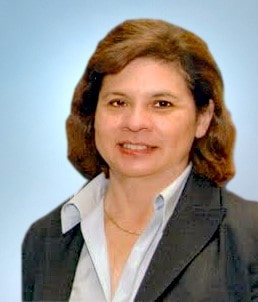
Chair: Allison F. Zuniga, NASA Ames Research Center, Strategic Partnerships Office. Allison Zuniga presently serves as Project Development Manager for Commercial Space Initiatives at NASA Ames Research Center's Strategic Partnerships Office. During her tenure of over 30 years at NASA, she has worked as Aerospace Engineer and Project Manager on several Space Transportation and Space Science missions including NASA's Artemis Space Launch System and Orion Spacecraft, Space Shuttle Program, International Space Station, Lunar Atmosphere and Dust Environment Explorer (LADEE) mission, NASA's Commercial Orbital Transportation Services (COTS) and Commercial Crew Programs. She has a BS in Aerospace Engineering from Syracuse University; an MS in Aerospace Engineering from USC and an advanced graduate degree from Stanford University.
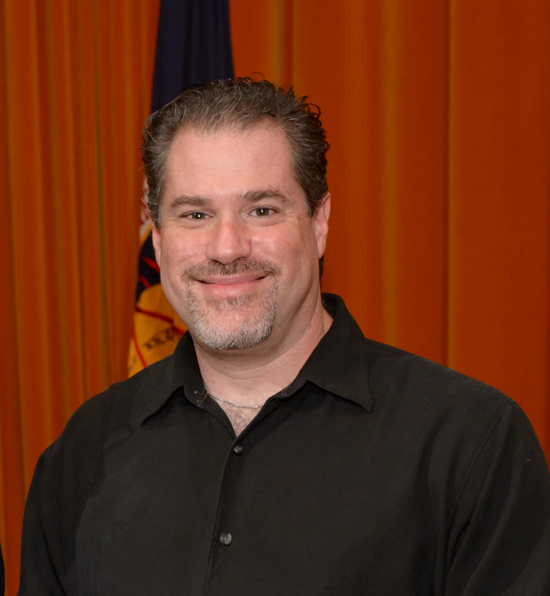
Anthony Colaprete is a Planetary Scientist at the NASA Ames Research Center. Dr. Colaprete has led or participated in several flight projects, including being PI and Payload Manager for the LCROSS mission and the PI and Instrument Manager for the LADEE UVS instrument. Currently Dr. Colaprete is the PI for the NIRVSS instrument, an instrument manifested on the Astrobotic Peregrine lunar lander Mission-1, a Co-I on the LunaH-Map EM-1 cubesat mission and the Mastcam-Z Mars 2020 instrument, and the lead Mission Scientist for the Volatiles Investigating Polar Exploration Rover (VIPER) lunar rover mission. Over the last decade Dr. Colaprete has worked to migrate terrestrial resource exploration techniques and principles to lunar and Mars resource exploration, developing an “applied planetary science” framework that bridges the gap between science, exploration, and technology.
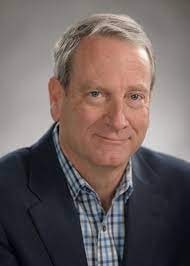
Bruce Pittman is the V.P. of Development at Skycorp, Inc. and is a co-founder of the Space Portal Office at the NASA Ames Research Center. He is also a co-founder and CEO of the not-for-profit, Future Frontiers Institute, and a member of the Board of Directors of the National Space Society. Bruce has over four decades of experience in aerospace and high technology system development. He served as a civil servant at NASA Ames for the first 11 years of his career (working in planetary exploration and airborne and space based infrared astronomy). He then transitioned to the private sector where he worked as a system engineering and project management consultant on large complex systems with clients both in government and industry including NASA. Bruce helped launch several startups including SpaceHab and Kistler Aerospace and is a regularly invited speaker at numerous conferences, often giving keynote addresses on space development in the U.S., Europe and Asia. Bruce returned to NASA Ames in 2005 as a contractor to help found the Space Portal. Bruce has a BS in Mechanical/ Aerospace Engineering from U. C. Davis and a MS in Engineering Management from Santa Clara University. He has authored or co-authored over 50 papers on technology, management, and business topics in aerospace and high technology. Bruce has also been a member of the adjunct faculty in the Graduate Engineering School at Santa Clara University for 35 years. His numerous career awards include the NASA Exceptional Public Service Medal in 2011 for “exceptional leadership in pioneering the development of commercial space for public benefit.”
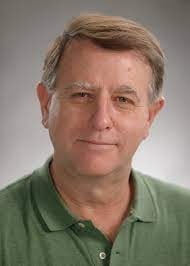
Dan Rasky, Ph.D. is a NASA Senior Scientist and the current Chief of the Space Portal Office he co-founded in 2005. From 2005-2006, Dan was a core member of the NASA HQ Team that established the NASA Commercial Orbital Transportation Services (COTS) program. He was awarded the Exceptional Achievement medal for promotion of partnerships with the emerging and non-traditional space industry in 2006. President George W. Bush conferred on Dr. Rasky the rank of Meritorious Senior Professional in 2007 for sustained superior accomplishment in public service. Dan was also awarded NASA's most distinguished recognition for innovators or the “Inventor of the Year” award in 2007 and the “Government Invention of the Year” award in 2009 for his SIRCA and PICA heat shield innovations. PICA enabled the NASA Stardust comet sample return mission, the fastest entry ever at Earth of a human-made object, and is currently on display at the National Air and Space Museum in Washington, DC. PICA also enabled the Mars Science Laboratory and the Mars 2020 missions which put the Opportunity and Perseverance Rovers on Mars, as well as the current NASA Osiris-Rex asteroid sample return mission. In 2008-2009, Dan worked with SpaceX to develop the thermal protection systems for their Dragon capsule which is flying PICA as its primary heat shield. Formerly Chief for the Thermal Protections Materials and Systems Branch at NASA Ames, Dan is an internationally recognized expert for space thermal protection and entry systems. He was selected for a series of interviews for his “…breakthrough innovations and answers to complex challenges” viewable on NASA's official Knowledge@NASA YouTube Channel. Prior to NASA, Dan worked for a small aerospace company, Acurex, conducting R & D contracting work for the Air Force.
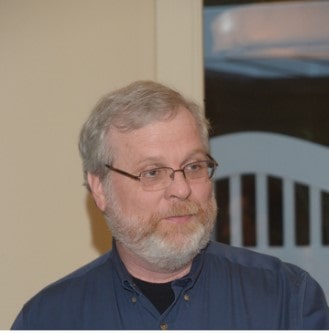
Colin Williams is Acting USGS Mineral Resources Program Coordinator, on detail from his position as Director of the Geology, Minerals, Energy, and Geophysics (GMEG) Science Center at the USGS Moffett Field, California campus. The USGS Mineral Resources Program provides objective, credible, and reliable scientific information on the origin, distribution, quantity, and quality of nonfuel mineral resources, assesses mineral potential, informs the nation on global mineral supply-demand and materials flows, and characterizes the environmental impact of development. The GMEG Science Center pursues geologic mapping, energy and mineral resource assessments, landslide and earthquake hazards studies, and climate change investigations throughout the western United States. Previously he served as Chief of the Geothermal Resource Investigations Project, with responsibility for leading a team of USGS employees in assessing the geothermal energy resources of the United States and conducting research on improved methods for characterizing and evaluating geothermal resources. His primary research interest is in measuring and modeling the flow of heat and fluids through the Earth's crust and using those measurements to understand hydrothermal processes, earthquakes, and groundwater flow. Colin has a BS in Engineering from Harvey Mudd College, an MS in Mechanical Engineering from UC Berkeley, and an MPhil and PhD in Geophysics from Columbia University.
A Deeper Understanding of ESG for Better Management and Investment Decision-making: Anne L. Williamson, Vice President Global Sustainability, WSP USA
ESG is more than just the latest term for what the mining industry has been doing for years: going beyond compliance, engaging communities, and seeking the nebulous social license. ESG risks can threaten the ability of an operator to deliver minerals to the marketplace on its planned timeline or in the amounts anticipated. ESG encompasses a multitude of factors that may vary considerably depending on mine location, size, commodity, and lifecycle stage. A deeper understanding of ESG allows better decision-making and risk management, both for the operator and investor. ESG scores are important signposts and should be underpinned by a robust ESG risk management program. Operators incorporating material ESG issues and risks into their business planning are better able to manage risks that could increase costs or impede production. As a result, investors and management with a deeper understanding of ESG can make more fulsome assessments of the potential risks involved with each mining facility.
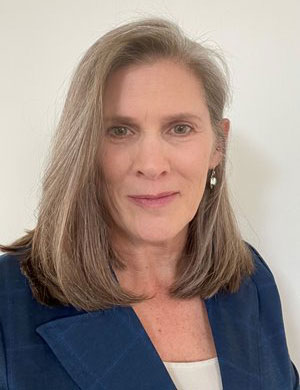
Anne Williamson is an industry leader in the development and implementation of sustainability and environmental programs in the global engineering and mining businesses. Currently with WSP USA, Anne's career has spanned from greenfield exploration to compliance and mine permitting, to executive leadership. She has created and managed environment, sustainability, and enterprise risk management programs, and held sustainability and technical leadership positions with mining companies and technical consultancies, including Phelps Dodge, Twin Metals Minnesota, URS, and Wood. She has created trusting working relationships with communities, indigenous groups, labor organizations and regulatory agencies. She served as a part of MMSD, the precursor to ICMM. Anne currently has the honor of serving as an SME director-at-large. She has served on the board of directors and as Vice President of the Mining Minnesota trade association, and as board advisor to Jobs for Minnesotans, a coalition of industry, labor, and municipalities. She holds a Bachelor's and Master's degrees in geology.